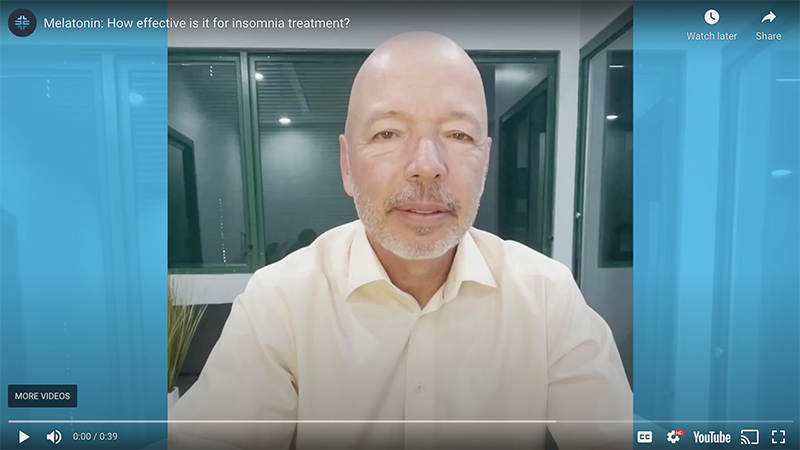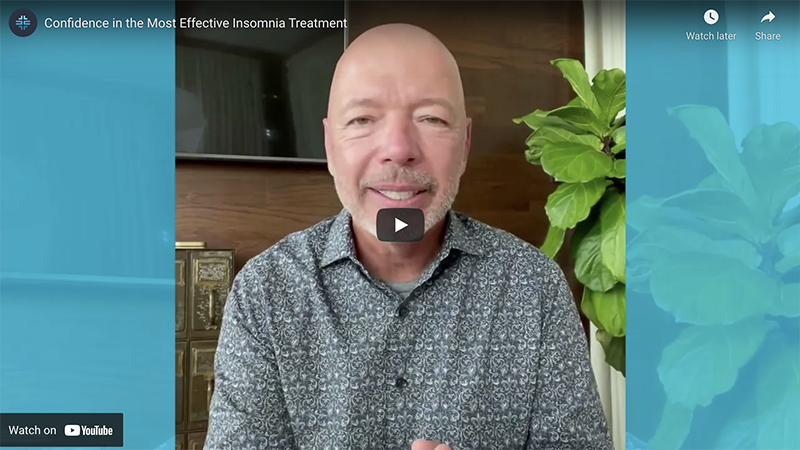
Being unable to sleep is a terrible feeling. You feel physically exhausted, mentally drained and helpless as you try to get a good night’s sleep. Most people have periods where they have difficulty sleeping, but how do you know if it’s insomnia?
While 30 percent of adults in the U.S. suffer from some form of insomnia during their lives, it can be challenging to know for sure if it is a consistent issue or a bump in the road.
The National Sleep Foundation defines insomnia as a chronic condition if it happens three nights per week for three months or longer.
What Are Common Symptoms of Insomnia?
Here are some of the signs and symptoms that are associated with insomnia, chronic or otherwise:
- Difficulty falling asleep at night
- Waking up during the night and being unable to go back to sleep
- Waking up too early
- Not feeling well-rested after a night’s sleep
- Daytime tiredness
- Lack of focus at work or school
- Difficulty with interpersonal interactions
- Irritability, depression, anxiety or other mood disturbances
- Ongoing worries about sleep
What Causes Insomnia?
If you see these symptoms, you may be wondering why you have insomnia and what caused it. Stress, health conditions and poor habits can all lead to an inability to get adequate rest. Here are some of the most common causes of insomnia:
- Daily Stress: Stress is a strong deterrent to sleep. Work, school, family, and finances are just a few things that can cause someone enough stress to be unable to sleep. Stress causes the brain to become much more active at night than it usually would be.
- Poor Sleeping Hygiene: Sleep hygiene can make or break your ability to get a good night’s rest. If you use electronics, eat large meals, consume caffeine, alcohol or tobacco before bed, use your bedroom as a workspace, or take naps, you are setting yourself up for sleeping failure.
- Have a Poor Bedroom Environment: Your bedroom environment can aid or hinder your sleep. If your bedroom has too much light and noise or is too hot, it can make it difficult to sleep. A cool, dark, quiet bedroom is always preferable if possible.
- Shifting Sleep Schedules: If your sleep schedule is inconsistent due to work or any variety of reasons, your body’s circadian rhythm can be thrown off and make it difficult to sleep at a consistent rate. The circadian rhythm is designed to help you maintain consistent patterns like sleep or metabolism.
- Prescription Medication: Prescription medications used as stimulants or depressants can affect the normal sleep cycle.
- Aging: As we age, we don’t sleep as deeply and have more difficulty staying asleep. Lower secretion of melatonin, chronic pain and heightened sensitivity to noise all develop with age and make it more difficult to sleep.
- Illness or Injury: Illness and injury can make a good night’s sleep a challenge. If you are in bed or immobile for long periods due to a physical condition, your sleep debt is lessened, which makes it harder to sleep.
Negative Side Effects of Insomnia
If these symptoms sound familiar, you need to seek help from a medical professional as soon as possible. If your sleep disorder is neglected, the side effects and complications will continue to grow.
- Lower school or work performance: Whenever we are unable to get quality sleep, we are unable to process and work through complex issues.
- Mental Health Disorders: Sleep and mental health go hand-in-hand. When one is affected, so is the other. While sleep is not a complete remedy for mental health disorders, it can help improve depression, anxiety and overall mental health.
- Heart Disease: Not getting enough sleep can lead to serious cardiovascular health side effects like high blood pressure, diabetes and obesity.
If you think you might have insomnia, contact your healthcare specialist as soon as possible to look for treatment options. If you want effective treatment, with proven results, contact Somly today to get your good night’s sleep back.


